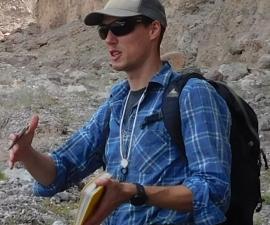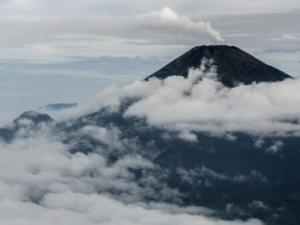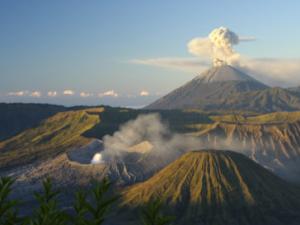

Research Expertise and Interest
geology, stratigraphy, paleomagnetism, paleogeography, paleoclimate
Research Description
Nicholas Swanson-Hysell is an Earth scientist whose research seeks to place quantitative constraints on the long-term evolution of Earth through integrating geophysical and geochemical data sets that are developed within a rigorous geologic context. A major focus of this research is on paleomagnetic and rock magnetic data sets, often from stratigraphic sequences, that his research group develops in order to test hypotheses about the migrating positions of continents (paleogeography), changes to the surface environment (particularly planetary climate change), and the evolution of Earth’s magnetic field. Hypotheses abound in Earth science related to major transitions such as the reorganization of continental blocks into and out of supercontinents and the initiation and terminations of ice ages including global glaciation. Our research projects bring quantitative constraints to such changes, including their timing and rates, in order to test such hypotheses and further understanding of Earth’s long-term evolution. Publications out of our research group can be found here: http://www.swanson-hysell.org/publications/ with associated code and data available here: https://github.com/Swanson-Hysell-Group
In the News
Island-building in Southeast Asia created Earth’s northern ice sheets
Ice Ages triggered when tropical islands and continents collide
Featured in the Media
The magnetic record stored in rocks documents the liquid core’s behavior and possibly when the inner core formed. Whether it formed half a billion or more than a billion years ago, however, is up for debate.
Typical paleomagnetic measurements average a sample’s signal. The quantum diamond microscope helps scientists make micrometer-scale maps of magnetism, showing where a sample locked in its magnetic signatures.
The leading cause of the six ice ages that have occurred over the past billion years has been the collision of continental land masses with volcanic island arcs in the tropics, reports a team of scientists co-led by assistant earth and planetary science professor Nicholas Swanson-Hysell. The collisions are inevitable with the constant movement of Earth's tectonic plates, they say, and the global cooling effect comes from newly formed mountains with rocks called ophiolites, which remove carbon from the atmosphere. "Earth has a long-running carbon sequestration program," Professor Swanson-Hysell says. "We know that these processes keep Earth's climate in balance, but determining what causes shifts between non-glacial and glacial climates on million-year timescales is a long-standing puzzle." For more on this, see our press release at Berkeley News. Stories on this topic appeared in more than a dozen sources, including FARS News Agency (Iran), News Live TV, and Before It's News.

